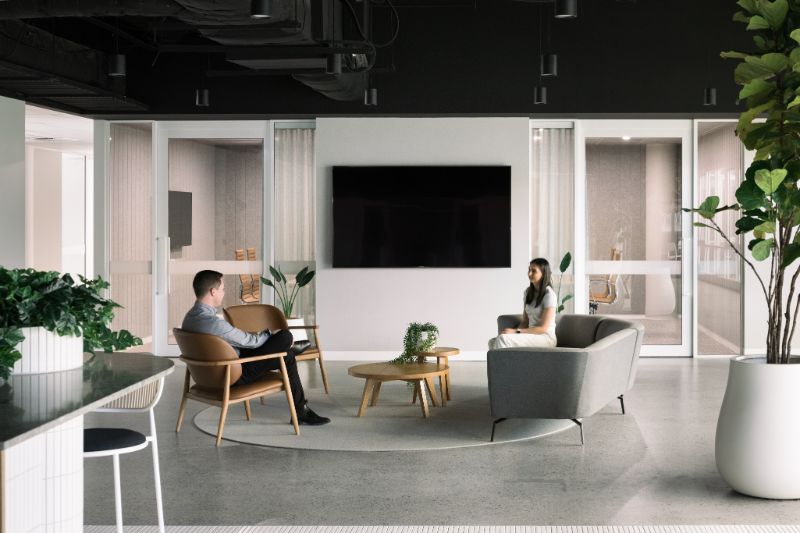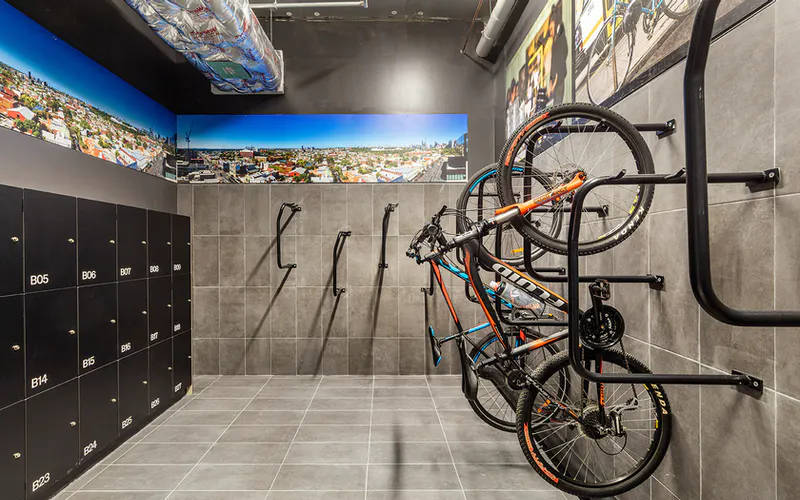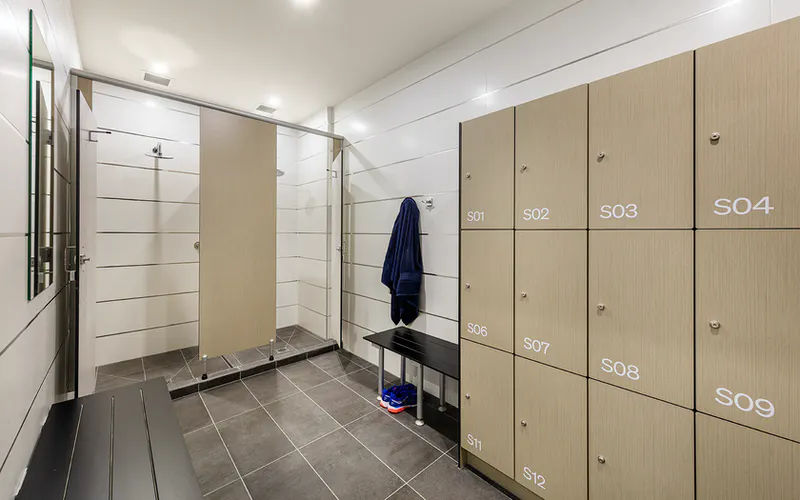5 tips to increase workplace productivity
It can be challenging to maintain high levels of productivity across the board. Even if your team feels motivated to work, different factors can impact their focus and performance, causing their productivity to backslide as time passes.
That’s why it’s important to keep a close eye on your organisation and resolve internal issues as soon as they emerge, allowing your team to stay focused on their work with minimal distractions.
Common issues that can impact your team’s productivity include:
- Lack of employee training
- Lack of recognition and sense of belonging
- Ineffective management and organisational structure
- Having a toxic workplace
Addressing the reasons why your staff feel unproductive will allow you to pinpoint which issues you’re facing and develop solutions. You can maintain a good baseline for your team’s productivity levels and prevent future issues by ensuring you have everything you need in the workplace. This includes nurturing a positive company culture and providing proper equipment and infrastructure.
Once your team is performing at their best, the next step is to utilise strategies that will help you sustain and increase productivity at a high level.
5 ways you can increase your team’s productivity
Implementing the right productivity boosters can motivate your team to keep a high-paced performance and enjoy the work they’re doing without them feeling burnt out or too stressed.
Here are five ways that can help you keep your momentum and ensure that you’ve got a productive team on your hands.
1.Provide training and professional growth opportunities
The best way to nurture your staff to be more productive is by helping them grow. Offering training and professional development opportunities can boost overall morale and individual staff performance. The right training opportunities for your staff ensures that all your current business needs are met, while also enabling your staff to succeed in the tasks assigned to them. On the other hand, professional growth opportunities open staff mindsets to what is possible outside of what’s right in front of them. It prepares your team (and your organisation) for the future and helps your team’s skills and knowledge stay relevant.
It’s important to encourage professional growth opportunities as it enhances your staff members’ value in their fields, allowing them to advance their careers. These opportunities can help your employees sharpen their respective skills, allowing them to be more confident in their capabilities and proactively support you in developing your business.
You can create formal and informal professional development opportunities. Informal learning opportunities give the participant total control over when and where they can seek assistance.
This is a great supplement for your staff as it boosts their skills and knowledge in a direct and accessible way.
Examples of informal growth opportunities include:
- Podcasts
- Webinars
- Online tutorials
Formal opportunities include programs overseen by professional organisations and development certifications. A formal program can be a rewarding investment to provide for top-performing employees as it can teach them new and relevant skills related to their fields while providing certification after the program’s completion.
Examples of formal growth opportunities include:
- Workshops
- Masterclasses
- Community-based events and activities
Offering a good mix of formal and informal development opportunities will show that you prioritise your staff’s personal growth and career choices, which can increase employee retention and long-term satisfaction.
When your employees are consistently up to date in their industries, they can work more effectively and ensure that your business adapts to changes in the market with fluid pace and accuracy.
2. Recognise and reward your staff’s accomplishments
Everyone loves a pat on the back. Recognising and rewarding your staff’s achievements will show that you value their work, motivating them to stay engaged and loyal to your organisation.
Lack of recognition and reward can lead your staff to feel increased pressure to perform and be uncertain about their progress and development.
Expressing your appreciation can create a positive bond between you and each staff member and build a productive team. Giving positive feedback can help your staff find the most effective way to accomplish their tasks while easing any performance anxieties.
Although they’re often combined in organisational programs, recognition and rewards work differently from each other. Recognition provides a psychological benefit as it uses positive reinforcement such as praise to boost your staff’s mindset.

There are many ways you can show your appreciation for your staff. Recognition can be:
Emails
Verbal thanks
Public acknowledgement in meetings
Reward programs include standardised monetary incentives to motivate staff to perform on individual or even group levels. A reward program can include:
Commissions
Performance bonuses
Cinema ticket or massage vouchers
Knowing the difference between both will help you identify the best way to boost your team’s performance and morale.
3. Implement flexible work schedules
Flexible work hours are becoming a huge employee demand because of the benefits it provides. A flexible schedule gives your staff autonomy over their time and workspace location, empowering them to work when they’re most productive, which can increase their engagement and work motivation.
Creating a flexible workplace encourages you to build a results-oriented work culture where your team can focus on producing quality output without any of the typical workplace distractions, such as unnecessary meetings. At the same time, you can still implement “core hours” in the workplace, so that everyone can have overlapping work schedules and have time to socialise and bond as a team.
Workplace flexibility allows employees to improve their performance and enjoy a healthy work-life balance while enabling employers to reduce overhead costs and attract top talent, enabling you to gain (and retain) productive staff.
4. Encourage good work-life balance
Work-life balance means finding time for your professional and personal life, but it’s a constantly evolving concept because each generation views it differently.
This isn’t to say that every person in a specific age range has the same view of work-life balance, but getting a multigenerational overview of this concept can give you insight into helping your own team.
Here’s a snapshot of how each generation may view work-life balance:
- Baby Boomers - These staff members experienced hardships around the time of World War II, so they typically prioritise stability and security over having work-life balance.
- Gen X - As children of Baby Boomers, Gen X employees highly value work-life balance as it gives more family time. Extended vacation, maternity and paternity leaves are necessary prerequisites for Gen X staff.
- Millennials - Some of your youngest team members believe that a good work-life balance is finding a career that supports their ideal lifestyle, given that they were born into a higher standard of living with soaring housing and education costs.
It’s important to be in tune with what your employees need, regardless of what generation they’re from. Because work-life balance is different for every person, offering a flexible and inclusive workspace can address your multigenerational staff’s needs. Asking for their feedback on what they value can help take out the guesswork. You can also implement a “work from anywhere” set-up so that your employees can have more flexibility and freedom over their workspace and enforce a mandatory paid time off (PTO).
Here’s how coworking spaces can help a multigenerational staff achieve work-life balance:
- Mentorship opportunities - Baby Boomer staff have a strong sense of loyalty and you can show how much you value them by providing mentorship opportunities between senior and junior staff members. A flexible and multifunctional workspace can enable Baby Boomers to feel a sense of purpose and build strong relationships with staff under their care.
- Autonomy - Flexible work schedules work best in coworking spaces and they can empower Gen X staff members to develop their own work hours and ensure that they have time for their families.
- Networking opportunities - Millennials are constantly looking for ways to increase their professional value and marketability. Meeting experts from different fields within a coworking space can help Millennial staff learn new skills while staying motivated and engaged within your organisation.


5. Establish a collaborative and upbeat work environment
To increase productivity within your team, they will need a great work environment where they can exchange ideas with other professionals from different industries.
Unlike traditional offices, coworking spaces consist of members who work for a range of different companies, ventures and projects. This minimises direct competition and internal politics and enables coworking spaces to build a naturally collaborative environment. Because everyone has specialised skills and expertise, members can easily work together to find solutions or create new products.
Coworking spaces can help your team work more effectively because it encourages them to be creative and motivated in their work, by working alongside like-minded individuals who are passionate and willing to share their knowledge and skills.
There are a lot of distractions that can easily impact you and your team, so it’s important to create a positive environment and implement strategies that can boost your staff’s performance and engagement. One way to increase productivity in the workplace is by establishing a collaborative environment in a coworking space where you can promote staff flexibility and a healthy work-life balance.
If you’re ready to find a coworking space that can support your business and increase productivity, book a tour of our facilities.
We can ensure that you have a designated private workspace that will encourage your staff to be creative, collaborative and work to their highest standard.




